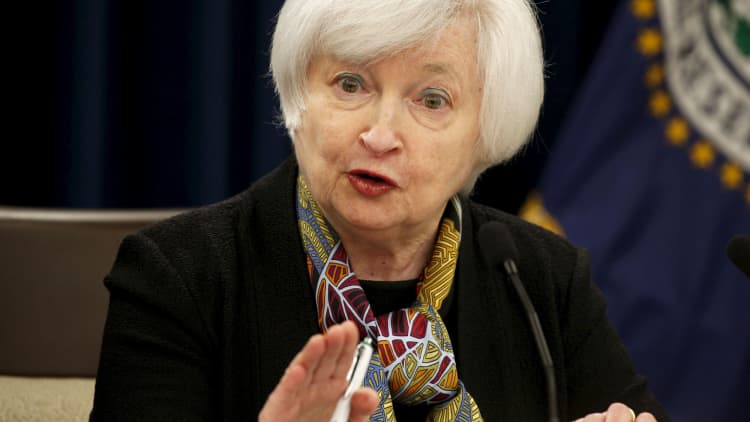China is not fully convinced about intensive U.S. Federal Reserve rate rises in 2017 and beyond, a Chinese foreign exchange regulation official said yesterday, hours after Fed chairwoman Janet Yellen said rates were expected to be raised "a few times a year".
At a media briefing in Beijing, the State Administration of Foreign Exchange spokeswoman Wang Chunying said doubts remained about policy implementation by the incoming Trump administration.
"The process of U.S. Fed rate rises as well as the strengthening of the U.S. dollar needs more observation," Wang said. "As everyone remembers, the Fed was widely expected to raise rates three or four times in 2016 after the rate increase at the end of 2015, but it only raised it once."
The comments came hours after Yellen told the Commonwealth Club in San Francisco that the Fed was on course to raise the rate so that "by the end of 2019, it is close to our estimate of its longer-run neutral rate of 3 percent".



Wang said that impacts of U.S. rate rises on China were waning.
"China's economic growth, and financial and social stability provide advantages to offset the impact of Fed rate rises," he said.
The impact of last year's Fed rate increases on China's capital outflows was smaller than in 2015, which saw the first rate rise in nearly 10 years, according to the spokeswoman, who attributed it to the completion of dollar-denominated debt repayment.
The U.S. dollar index rose about 7.1 percent in the fourth quarter last year, largely owing to the victory in the U.S. presidential race of Donald Trump, who promised a boost to infrastructure and tax cuts during the election campaign, as well as owing to the Fed's rate rise. But the index has fallen 1.1 percent this month.
More from the South China Morning Post:
Chinese government bonds see record sell-off amid tightening, looming Fed rate rise
Fed chair Yellen says 'makes sense' to gradually raise US interest rates
Outbound investment rose quickly last year as the yuan depreciated against the dollar, and levels surpassed foreign direct investment. Some investments such as in properties, hotels, entertainment and soccer clubs, were categorised as "irrational investment" and received more scrutiny.
Since December, China has resorted to capital controls on both outbound investment deals and individual dollar conversion, and sometimes the squeeze from offshore yuan market liquidity, to stabilise the yuan exchange rate.
"The timing for completing the regulatory procedures for outbound direct investment is highly uncertain at present," said a research note from Hogan Lovells, an international law firm working as an intermediary for cross-border deals.
The forex regulator reiterated yesterday that it would check the authenticity of deals and maintain high pressure on fraud and other irregularities. The country has lost $1 trillion of forex reserves since mid-2014, including $320 billion last year.

